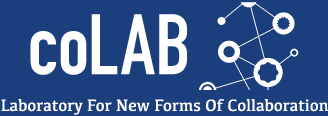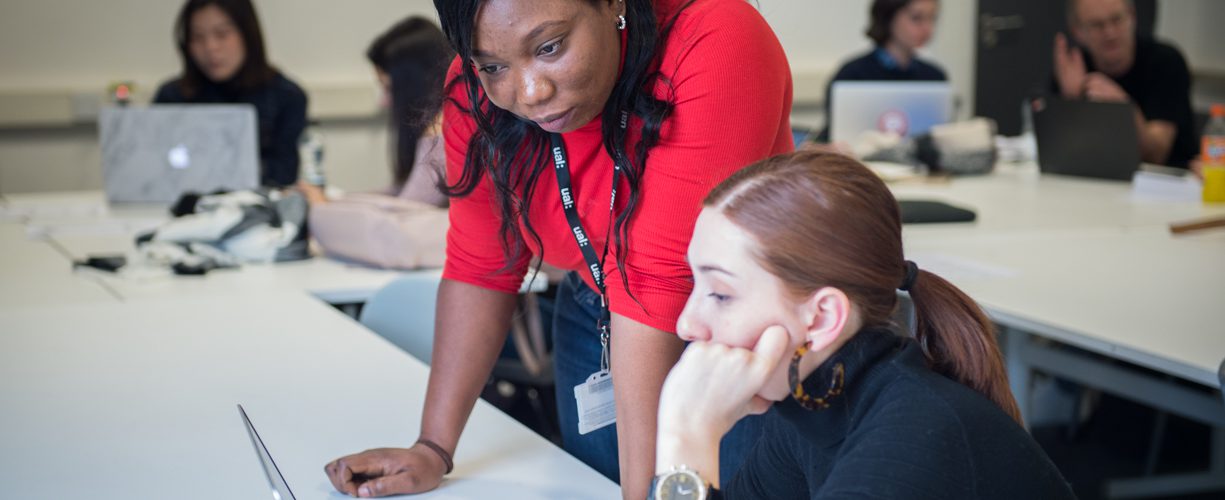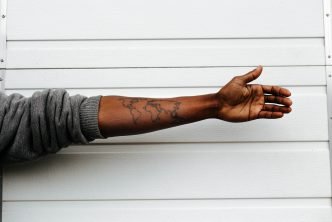In a fortnight where we have once again witnessed the destructive horror that extreme intolerance and Islamophobia can reap on communities, the tragic scenes from New Zealand serve as a reminder of just how crucial activities to strengthen integration and mutual understanding are in society.
Through inviting those displaced by conflict or persecution into universities to deliver sessions, in a small but effective way, coLAB is facilitating conversations between different cultures and religions in a bid to dispel some of the myths, stereotypes and misunderstandings that exist around migration.
As teaching draws to a close here at London College of Communication, it has been heartening to hear the feedback from host academics, students and the refugee participants on the positive impact the coLAB initiative has had on their understanding of the value of difference in an educational context, but also in society more generally. In project evaluation interviews, their words effectively capture the core purpose and intent of the activities. Here are just some of their insights.
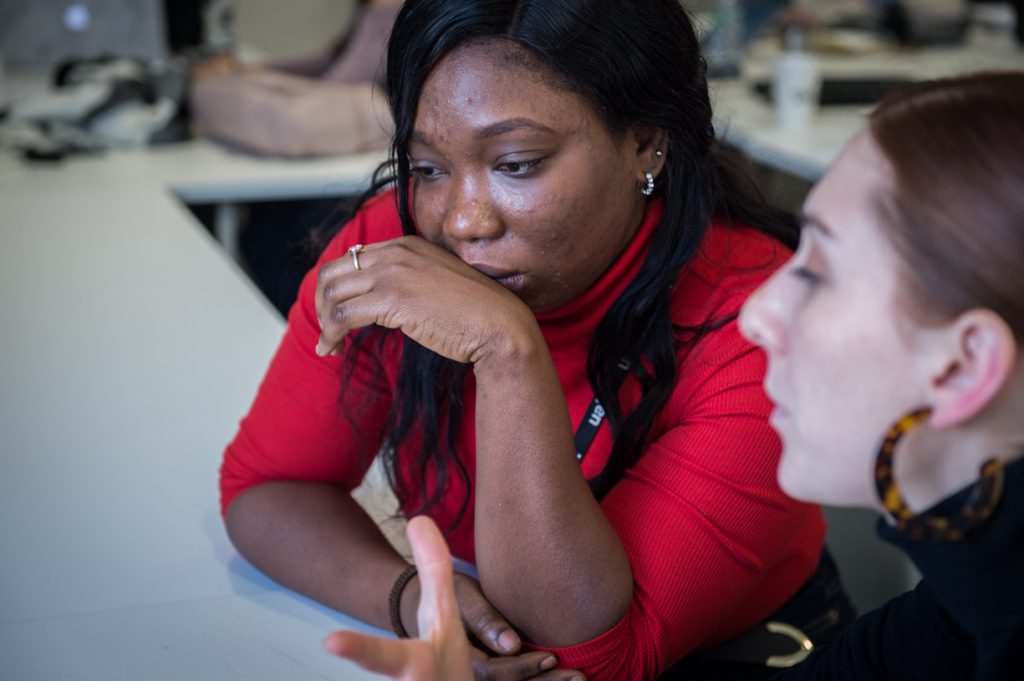
Originally from the Ivory Coast, Edwige Seri admits that rebuilding her professional life in the UK has been challenging:
“It’s not like you have the right connections. How people view refugees as well, because when you are a refugee they think you come in without having any background and having this language barrier as well was also quite difficult.”
Over the past two terms, in mainly workshops and studio settings, Edwige has been sharing her design expertise with students on MA Publishing and BA (Hons) Graphics Branding and Identity. Reflecting on what she has gained from this opportunity, she feels that some of her negative experiences of when she first came to the UK are starting to become undone.
“Being part of this project makes me feel confident again. Get back my confidence and knowing what I can do and knowing what I can’t do. I was really happy to be part of it. I just feel part of the community right now…I just feel welcomed.”
Edwige Seri
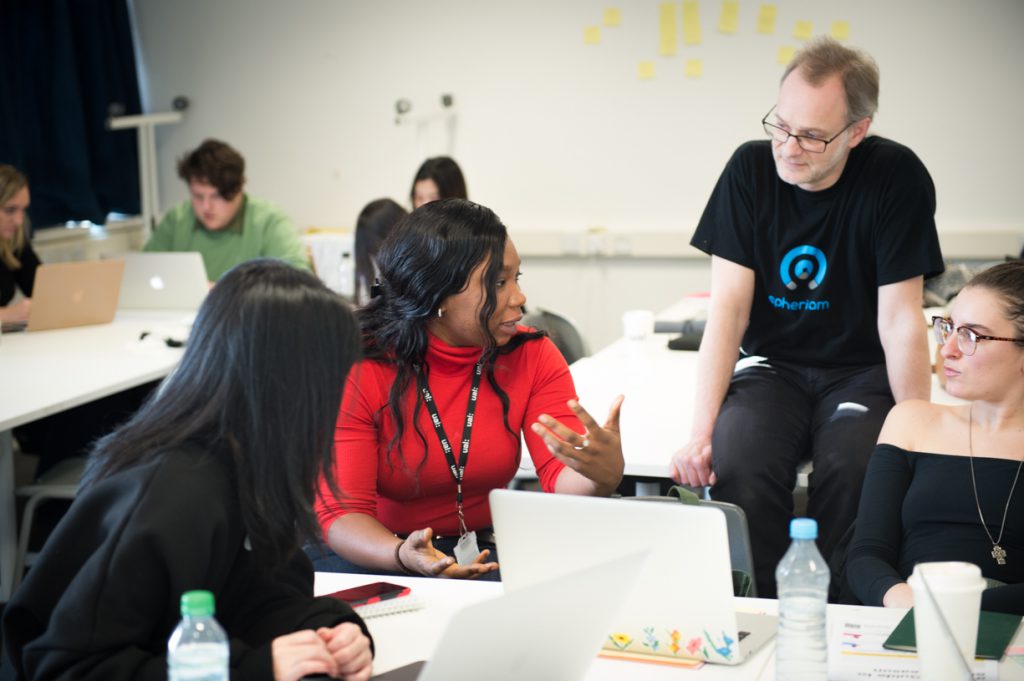
For Frania Hall, course leader in MA Publishing, having Edwige in the classroom has meant that the students get a more global perspective on their design work. It has also encouraged students from different cultural backgrounds to talk more openly about their own influences.
“It’s a way of creating empathy, it’s a way of creating understanding of other places and other experiences. We talk a lot on the course about skills communication, and that involves a lot of empathy, sympathy, but also empathy. Understanding people from different cultures, that’s what we are doing by her being here.”
“The more students are exposed to different types of voices, the more they will make sure that what they produce when they move into industry is inclusive, embraces other cultures, bringing different looks and feels in, bringing change, bringing new creativity.”
Frania Hall
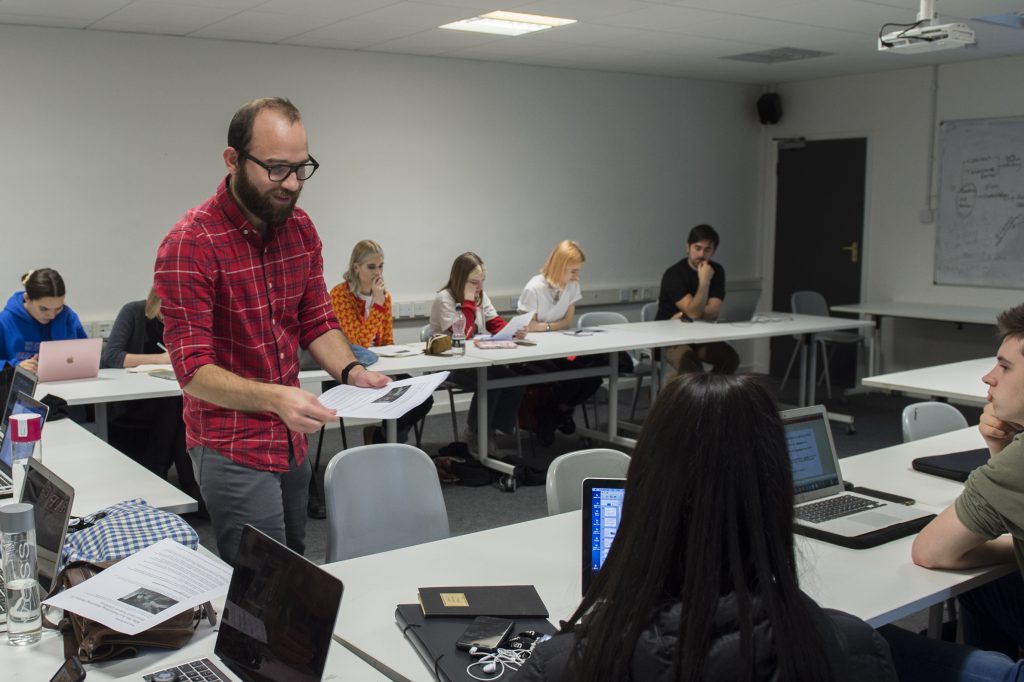
Prior coming to the UK, Syrian-born Abdulwahab Tahhan was an English teacher. When hostility broke out, he worked as a journalist and fixer for Western news organisations. Here at LCC, he delivered sessions to journalism and media theory students that covered the representation of suffering in conflicts, and the role of Western journalists in the Syrian war.
“It feels great to re-establish my professional life and career here in the UK. When I first arrived here I had lots of different jobs. I worked as a cleaner, I worked in a café and I was happy doing that…at least this was a job I can do, I can depend on myself.
“However, my aim was to always to go back to my profession, to teaching. So, when I get this opportunity to teach, particularly university students…I was extremely happy because…this is something I’m an expert in and tell students about my experience about things they don’t necessarily hear about in the media unless they meet someone from that country.”
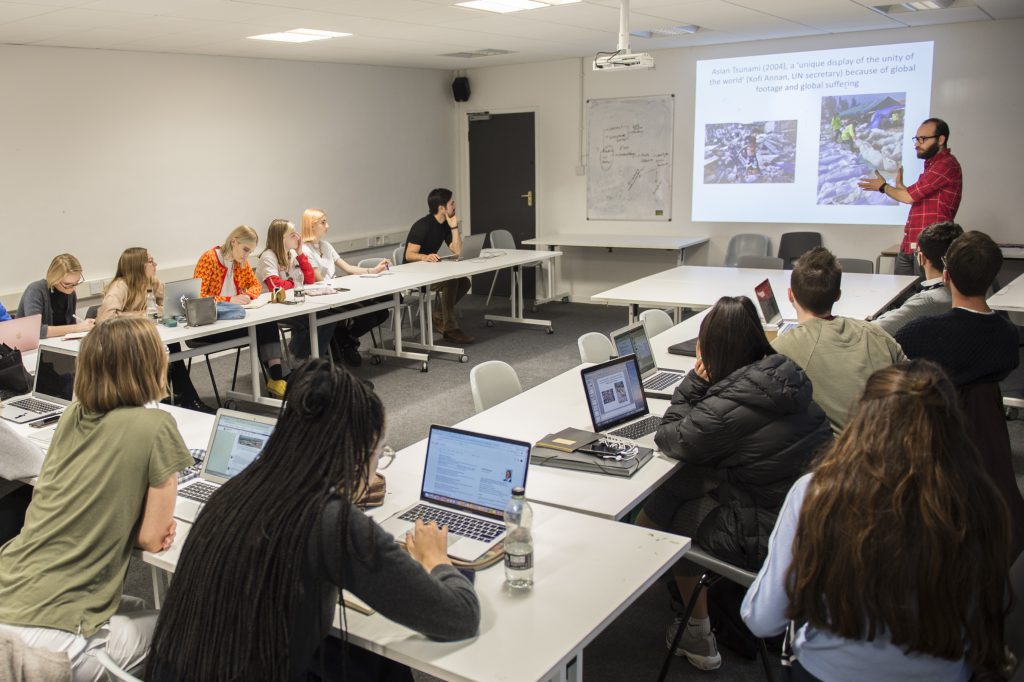
Second year journalism student George Janes says that having the opportunity to work with Abdulwahab has helped bring issues around ethics and reporting to life.
“There’s only so much you can learn from reading about an event or watching footage of an event. But to hear testimony from someone who has experienced that conflict, for instance his refugee journey…for me that was a lot more-hard hitting than footage or reading about it.”
George feels that some of the issues raised in the session have helped clarify what future work he wishes to do as a journalist.
“Even just a few students come away from that class wanting to get involved in future projects, humanitarian projects or anything like that, I think that’s of huge value that’s partly what these sorts of things are about, spreading the message and making sure that the right people know about it and everyone is on board and making the world a better place, really.”
George Janes
Using her experience as a journalist and communications expert in the Yemen, Amel Al Ariqi has been delivering sessions on humanitarian communications to Public Relations students. For her, the project has played an important role in giving its refugee participants dignity, and demonstrating that they have something of value to offer local communities.
“I think CoLAB, by providing us that platform, it’s giving us the confidence, the appreciation that we miss all the time, and the ability to think differently. So, I would say, go ahead CoLAB, continue if you can!”
Although teaching for this academic year has drawn to a close, our refugee participants’ relationship with the university and local community goes on via a collaborative project with postgraduate students for Visible Justice, an exhibition and public events programme exploring social justice in national and international contexts.
